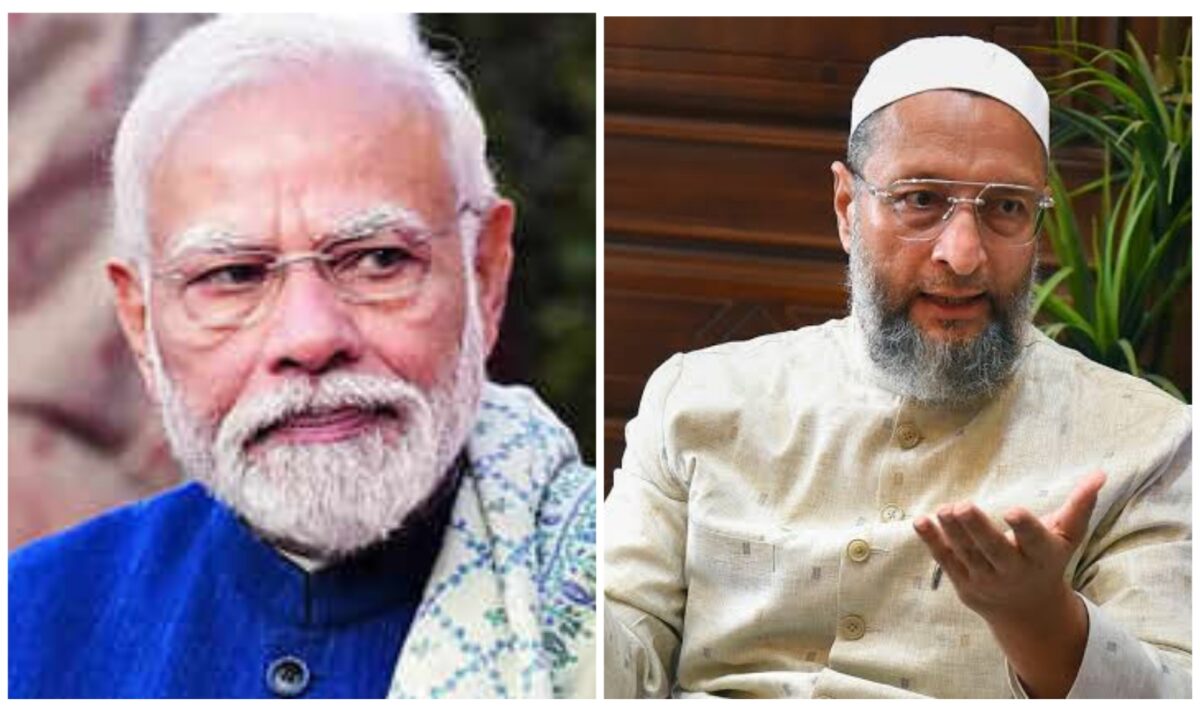Asaduddin Owaisi, the head of the All India Majlis-e-Ittehad-ul-Muslimeen (AIMIM), recently engaged in a heated political debate. Owaisi is taking a firm stand against Prime Minister Narendra Modi’s reportedly misleading and divisive statements about Muslims. The exchange was ignited by Modi’s remarks during his rally in Rajasthan thereby reviving debates on identity politics and religious tensions in India.
Owaisi Challenges the Factual Accuracy
In this speech, PM Modi accused the Congress party that it would favour “infiltrators” and families with more children if they took control of power in the country. Opposition leaders including Owaisi quickly criticized him for refuting these claims by citing official data revealing a decline in fertility rates among Muslims

Speaking at a campaign event in Bihar, Owaisi emphasized the need for factual accuracy in political discourse especially when discussing sensitive topics like religion and demographics. He underscored how ironic it is to concentrate on Muslims who have larger families even as well-known BJP leaders like Amit Shah and Ravi Shankar Prasad hail from equally large families.
Owaisi Highlights Past Persecution of Muslims
Moreover, he criticized Modi’s use of “ghuspaithiye” or infiltrators which falsely stigmatizes people residing within places such as Seemanchal in Bihar that border Nepal and Bangladesh. These issues also brought into focus that government has no official data regarding illegal immigrants, hence the need for openness and responsibility concerning these matters.
In his scathing attack on Modi’s speech pattern, Owaisi accused him of playing divisive politics against Indian Muslim community while maintaining friendly relationship with various foreign country’s leaders. He gave instances where Muslims in India have been persecuted historically like Gujarat riots among others to show the danger of inflammatory language and communal polarization.
The AIMIM Leader reiterated the party’s resolve to contesting elections in Bihar with Akhtarul Iman as a candidate from Muslim-majority Kishanganj constituency. This step indicates Owaisi’s attempt to give voice to marginalized communities and challenge the status quo in Indian politics.
Opposition Voices: Criticism of Modi’s Diversionary Tactics
Opposition leaders, like Rahul Gandhi and Jairam Ramesh, slammed Modi for trying to divert attention from crucial challenges facing the country. They called on Election Commission to be more accountable in terms of addressing Modi’s rhetoric that breeds division and ensure even playing ground for all political parties.
While BJP spokespersons defended Modi’s statements by asserting that they represent public opinion, critics accused him of using religion for political reasons. The confrontation between Narendra Modi and Owaisi exemplifies how difficult it is to navigate identity politics in India which prides itself on diversity and pluralism; thus emphasizing the necessity of unity and inclusivity during any political discourse.
In conclusion, Asaduddin Owaisi’s response to PM Modi allegations is a remainder about responsible fact-based dialogue needed for Indian politics. In order to advance a more inclusive and equitable society for all Indian people, Owaisi opposes divisive discourse and fights for the rights of marginalised communities.


